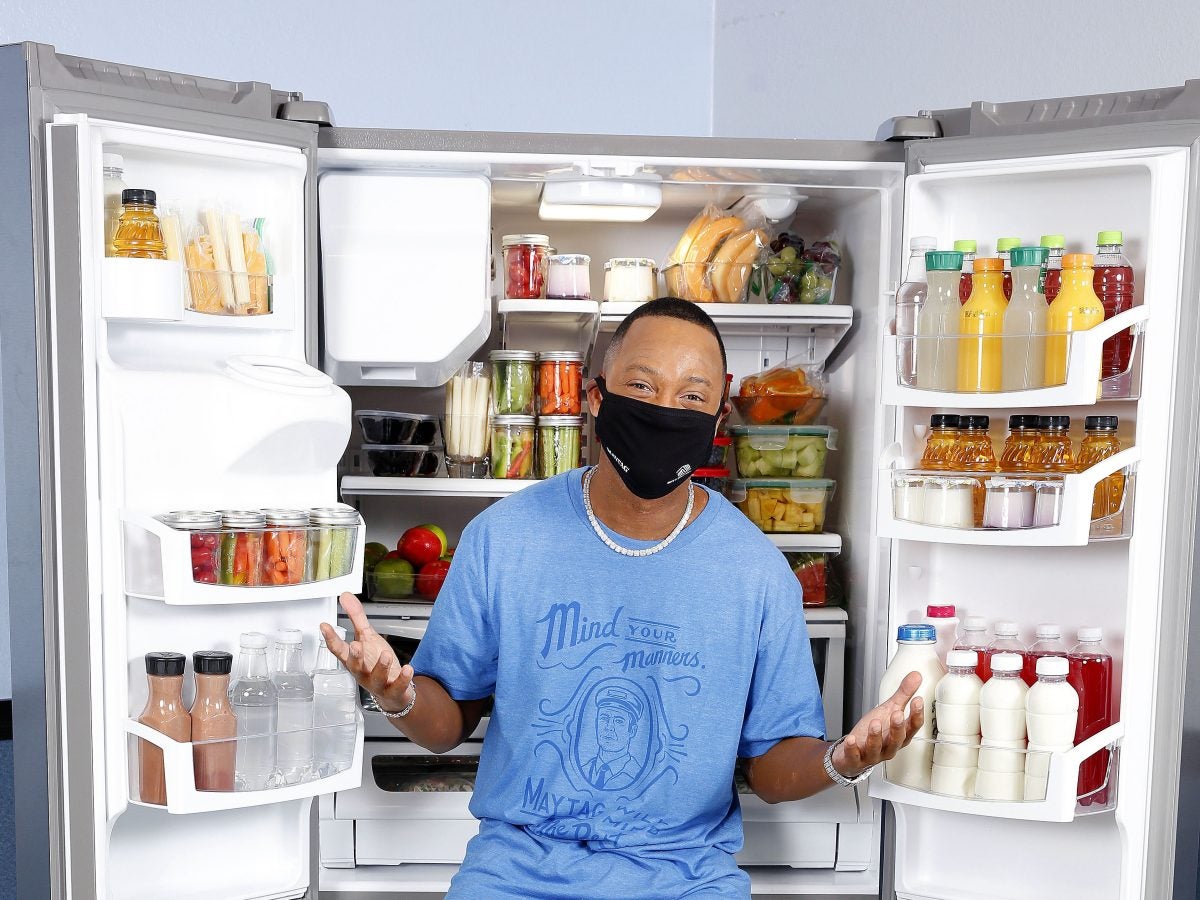
Terrence J and the Boys & Girls Club are working to fight food insecurity, one refrigerator at a time. The Think Like A Man actor and producer, whose real name is Terrence Jenkins, has partnered with Maytag to provide healthy options and proper refrigeration for children in need.
They are placing what they’re calling “Feel Good Fridges” inside clubs to offer healthy options that “children and their families can consistently depend on.” Each fridge is expected to serve “an average of 130 Club kids per day.”
“I grew up on welfare. So I know what it’s like as a child and I know what it’s like as an adult to be hungry and to not know where your next meal is gonna come from,” said the Academy-Award winning producer. “The statistics are alarming.”
The U.S. Department Of Agriculture found “38.3 million people lived in food-insecure households,” in 2020 including millions of children and a study conducted by the Institute for Policy Research, Northwestern University found “sharp increases in food insecurity,” during the COVID-19 pandemic, which disproportionately impacted Black households.
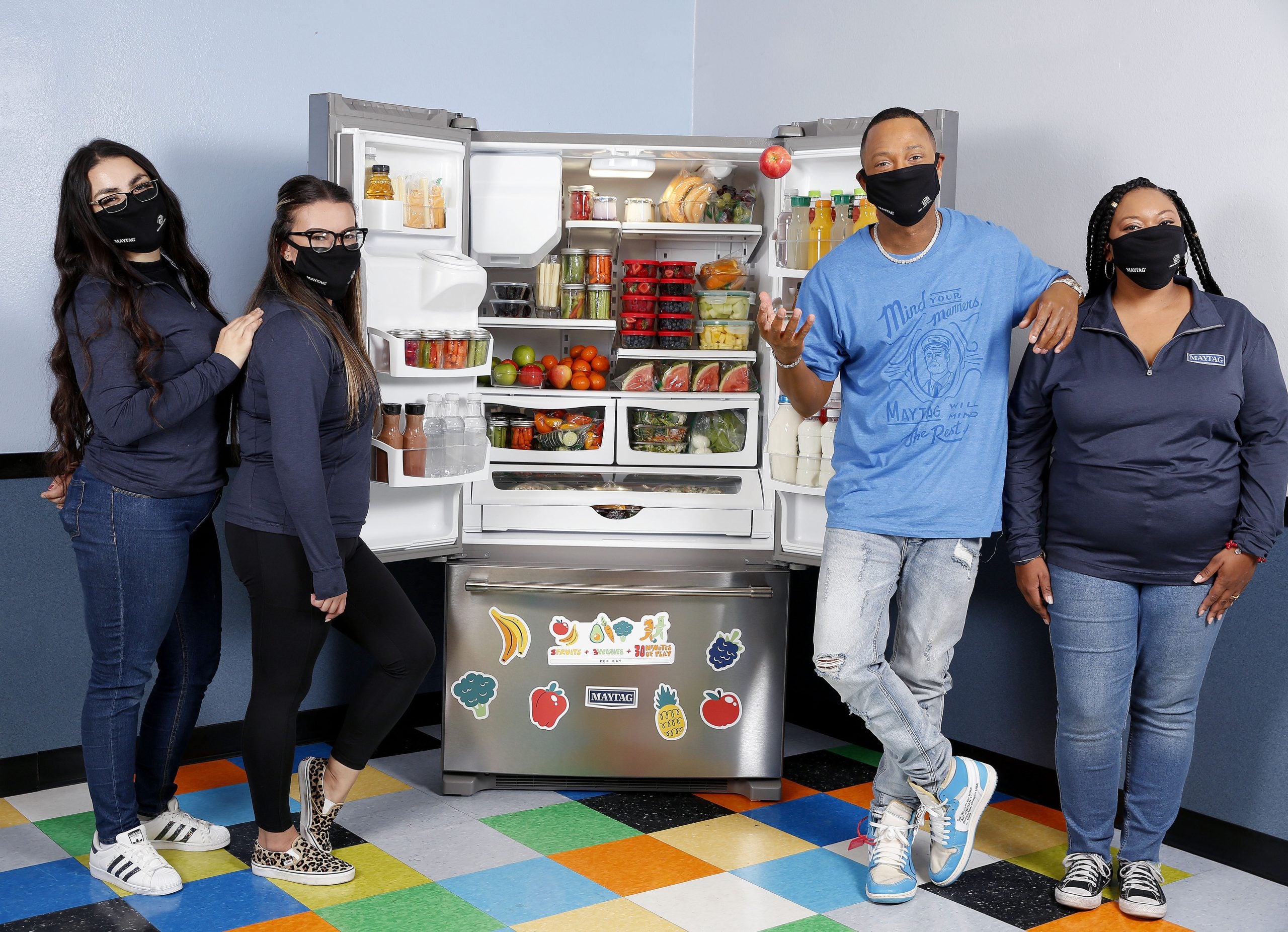
A separate study published by The Brookings Institution reported that 27.5 percent of households with children are food insecure and recommended immediate intervention to assist at least “14 million,” children.
“For the number to be that staggering 14 million is something that I feel like I personally wanted to address and personally wanted to be involved in,” said Terrence. “They wake up in the morning and where their next meal is, is not secured.”
Often based on surveys, statistics can be under-reported as a result of the stigma associated with food insecurity. Jenkins described some of the tricks he used to hide his struggles as a child.
“Government cheese is nothing that is cool, right? It’s never cool growing up to not have,” he said. “When you’re going to school, that was your meal for the day. I know what it’s like to try to ask for some extra applesauce.”
His family’s financial situation shifted throughout the years but the experiences stuck with him.
“I definitely remember what it was like,” he said.
“The embarrassment that young people face it’s detrimental to them, the psychology behind it. And so for me as an adult and in this place in my life, I want to do as much as I possibly can to reach back, to give back and to make sure that we can combat some of those numbers. So that the same numbers that we’re facing in 2020, aren’t the same numbers in 2030.”
The program is designed to address the problem from a community standpoint and they are hoping to reach thirty locations by 2022. “We all have to collectively recognize it as an issue and recognize it as a problem and fix it,” said Jenkins.
The pilot fridges will launch in Los Angeles, New York, Detroit and Grand Rapids.
Growing up, J attended four different middle schools and three different high schools on different parts of the East Coast, including Queens, New York, Harlem, Rocky Mountain and Raleigh, North Carolina.
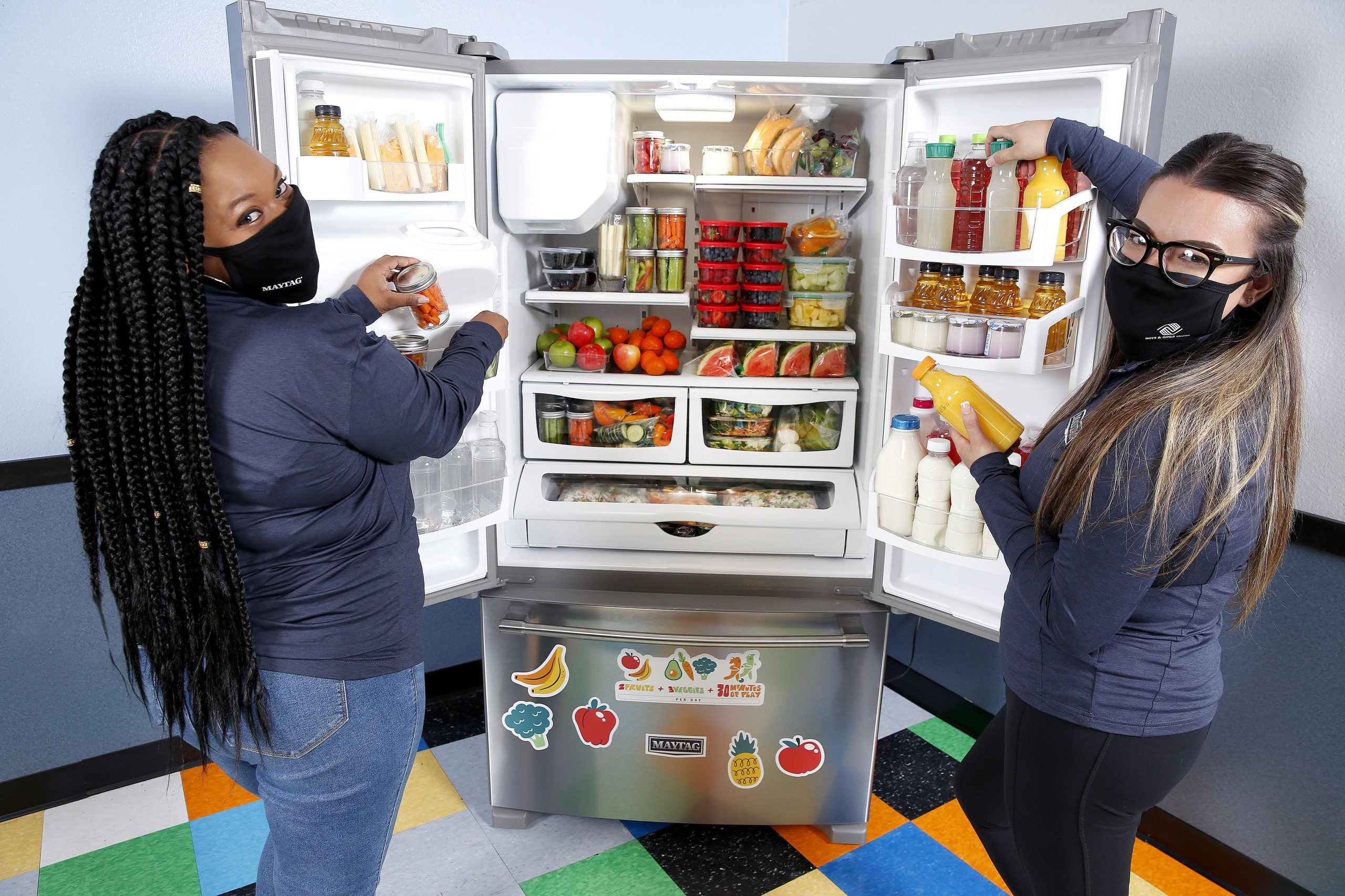
As a national organization the Boys & Girls Club gave his childhood a sense of continuity.
“I just remember, you know, my time there, especially when I went back and we launched this fridge, there’s a smell of the Boys & Girls Club. There’s a look and there’s a feel.” He recalled, “the rumblings and the sounds.”
“The Boys & Girls Club was always a constant. I knew what to expect. I had been to multiple Boys & Girls Clubs. So I knew the routine,” he continued. “There were always counselors, there were always volunteers that would invest the time with you. You knew you could go there and play basketball, play sports. I learned how to swim when I was at the Boys & Girls Club. I won an Oscar last year, my first time doing anything in drama or anything in that space was at a Boys & Girls Club.”
The centers provided a place that was a safer alternative to the shenanigans kids can engage in when left to their own devices. “I’m a latchkey kid. I know what it’s like to have that time. When school is over at 2:30, 3 o’clock, then the final bell rings. And then my parents don’t get off work ‘til seven,” he said. “It’s important that I had a Boys & Girls Club.”
“Growing up, it was easier to find drugs, find a weapon, find trouble than it was to find a tomato to find vegetables,” he added. “We have to stop that.”
Participants in the club’s programs will decorate each fridge with Maytag decals that will recommend “healthy food choices,” and provide “healthy eating tips.” This information will aid the efforts of the Healthy Habits curriculum that the Boys & Girls Clubs has offered at their programs.
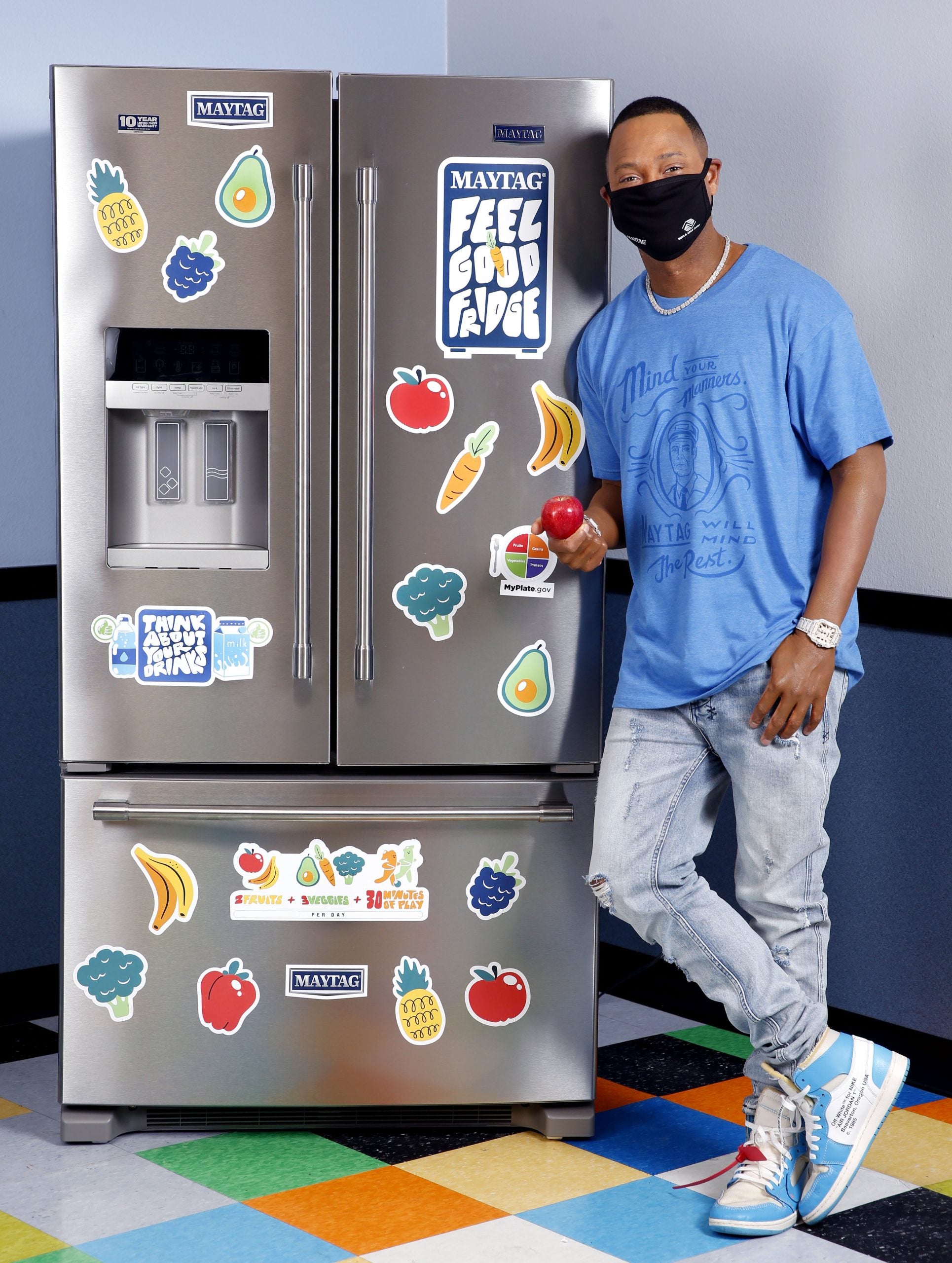
“We’re putting these refrigerators in the right communities. We’re going to stop them with healthy eating options. We’re going to get the information so that they can eat healthy and begin those habits at a young age,” he said.
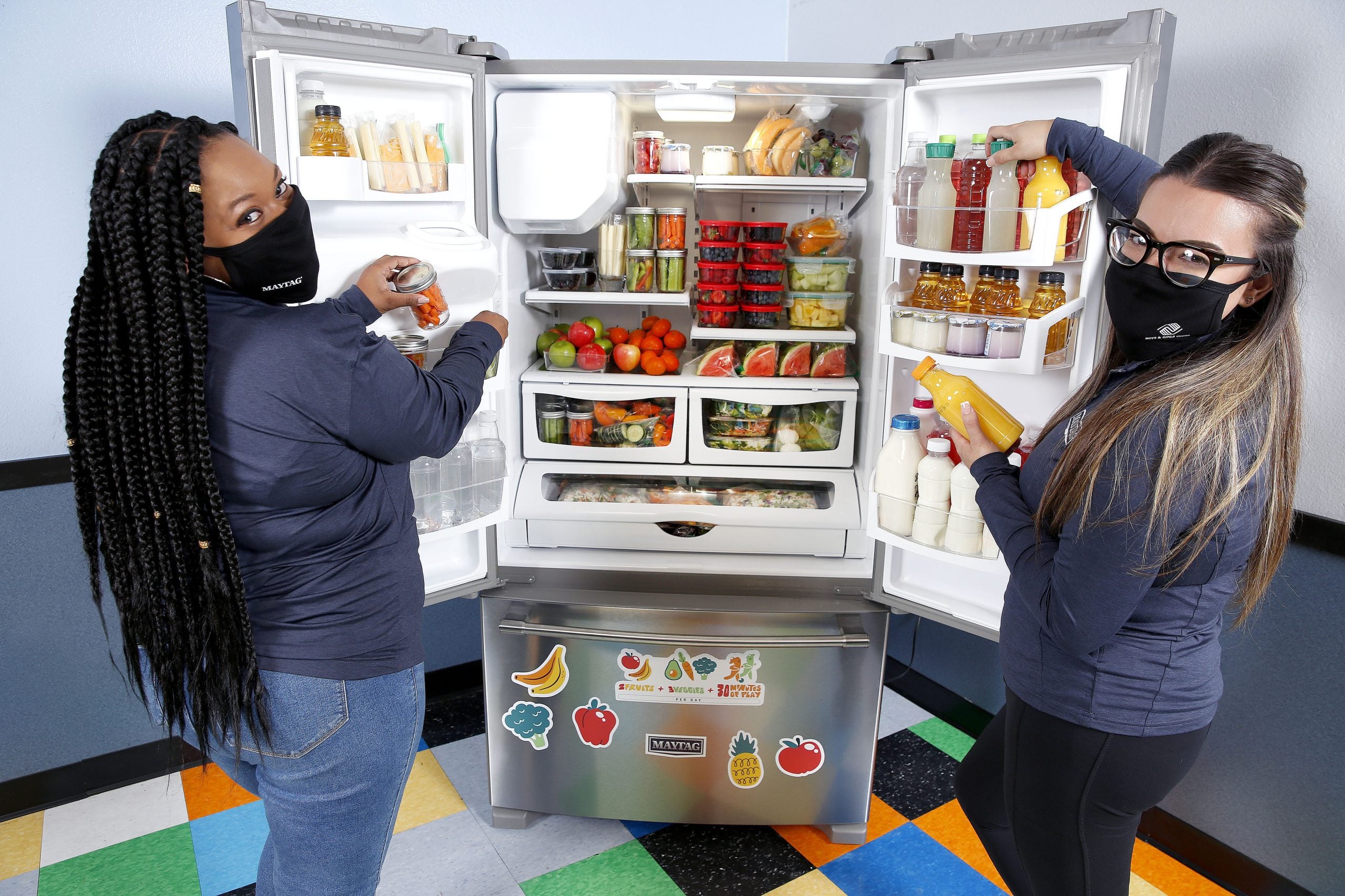
J says he chose to work with Maytag because of their established history. “They’ve been working with the Boys & Girls Club for a little under 20 years,” he said. “It felt organic as opposed to a brand that just wants to jump on a bandwagon of the pandemic or Black Lives Matter.
Maytag has awarded over nine million in scholarships and provided over six thousand volunteers through their partnership. The relationship began in 2003, seventeen years prior to last year’s onslaught of corporate courtship.
“Nah, I want it to work with people that have really been putting in the work. That’s why this relationship made sense for me.”
Learn more about what you can do to fight food insecurity in your neighborhood here.





